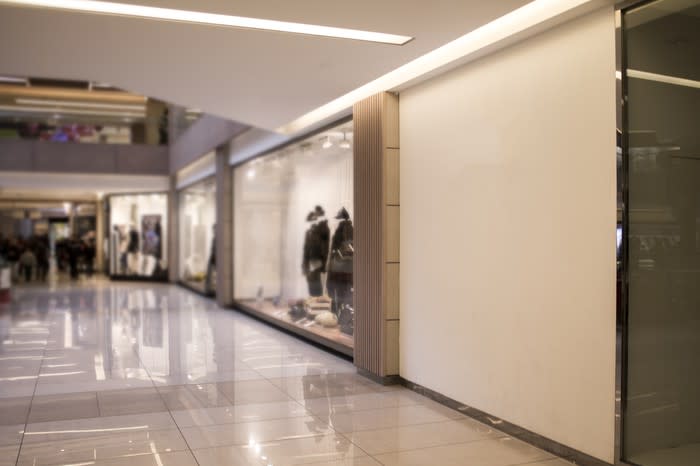CBL Stock Surges 19% on Activist Investor Involvement
CBL & Associates (NYSE: CBL) has been one of the biggest victims of the retail apocalypse in recent years. CBL shares have plunged from nearly $20 to less than $1 over the past five years. To make matters worse, the company was forced to suspend its dividend earlier this year -- following a pair of dividend cuts in the previous two years -- due to a growing cash crunch and roughly $90 million of liabilities from settling a class action lawsuit.
However, shares of the retail real estate investment trust (REIT) skyrocketed on Monday, gaining 19% after Exeter Capital announced that it had taken a 6% activist stake in the company. Despite this big pop, CBL stock looks like a potential value trap that investors should continue to avoid.
An activist investor arrives
CBL's management has been criticized for years for the REIT's poor performance. Several members of the founding Lebovitz family serve in high-ranking roles, suggesting that family ties may outweigh talent in choosing the management team. Thus, it's not surprising that investors would welcome the presence of a strong outside voice to drive change at the company.

CBL has underperformed in recent years. Image source: Getty Images.
In the SEC filing announcing its stake in the company, Exeter Capital indicated that it believes CBL stock is "undervalued and represent[s] an attractive investment opportunity." According to the filing, the fund and its managers "anticipate having discussions with management and the Board ... relating to [CBL's] underperformance, overall business strategy, board composition (which include reconstitution of the Board), corporate governance, management accountability, capital allocation, capital structure and the evaluation of strategic alternatives."
Tax rules and other corporate-governance policies typically impede hostile takeovers or campaigns to change the management of a REIT. As a result, Exeter Capital seems to be planning a friendly approach to management and the board in the hope of working cooperatively to get the stock moving in the right direction again.
CBL is playing with a very weak hand
Unfortunately for Exeter Capital and other shareholders, CBL's problems stem from more than just mismanagement. CBL owns very few high-traffic, premier malls -- and virtually all of them are mortgaged. Instead, the REIT gets more than half of its net operating income (NOI) from malls with sales per square foot of less than $375.
Low-traffic enclosed malls like these are having a huge amount of trouble justifying the high rents they have traditionally charged. The growth of e-commerce has decimated the profitability of many retailers, driving some chains out of business and forcing others to focus on their best stores. Either way, CBL loses. In the past couple of years, CBL has suffered dozens of department store closures within its portfolio, not to mention the closures of hundreds of smaller stores. The occupancy rate for its malls has fallen from 94.1% at the beginning of 2017 to 88.1% today, while average rents have trended lower.
As a result, comparable NOI dropped 6% last year and is expected to fall by another 7% (plus or minus 75 basis points) in 2019. CBL has already started to redevelop many of the vacant former department store spaces in its portfolio and is projecting respectable high-single-digit rates of return for most of these projects. However, the REIT has a very weak balance sheet, which has forced it to skimp on redevelopment spending and sell other assets to raise cash.
The biggest problem is that CBL's malls are still chock-full of underperforming retailers that could be forced to close lots of stores -- if they survive at all -- in the next recession. (Most notably, it still has dozens of malls anchored by J.C. Penney.)
If U.S. retail spending stays strong for a few more years, CBL may be able to redevelop most of the currently vacant space in its malls, driving a near-term earnings turnaround and putting it in a better position to navigate a future downturn. However, if the economy tips into recession in the next year or two, CBL's financial woes could become even more severe. As a result, the risk of owning CBL stock seems to far outweigh the potential reward right now.
More From The Motley Fool
Adam Levine-Weinberg owns shares of JCP. The Motley Fool has no position in any of the stocks mentioned. The Motley Fool has a disclosure policy.
CBL Stock Surges 19% on Activist Investor Involvement was originally published by The Motley Fool

 Yahoo Finance
Yahoo Finance 